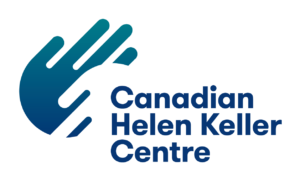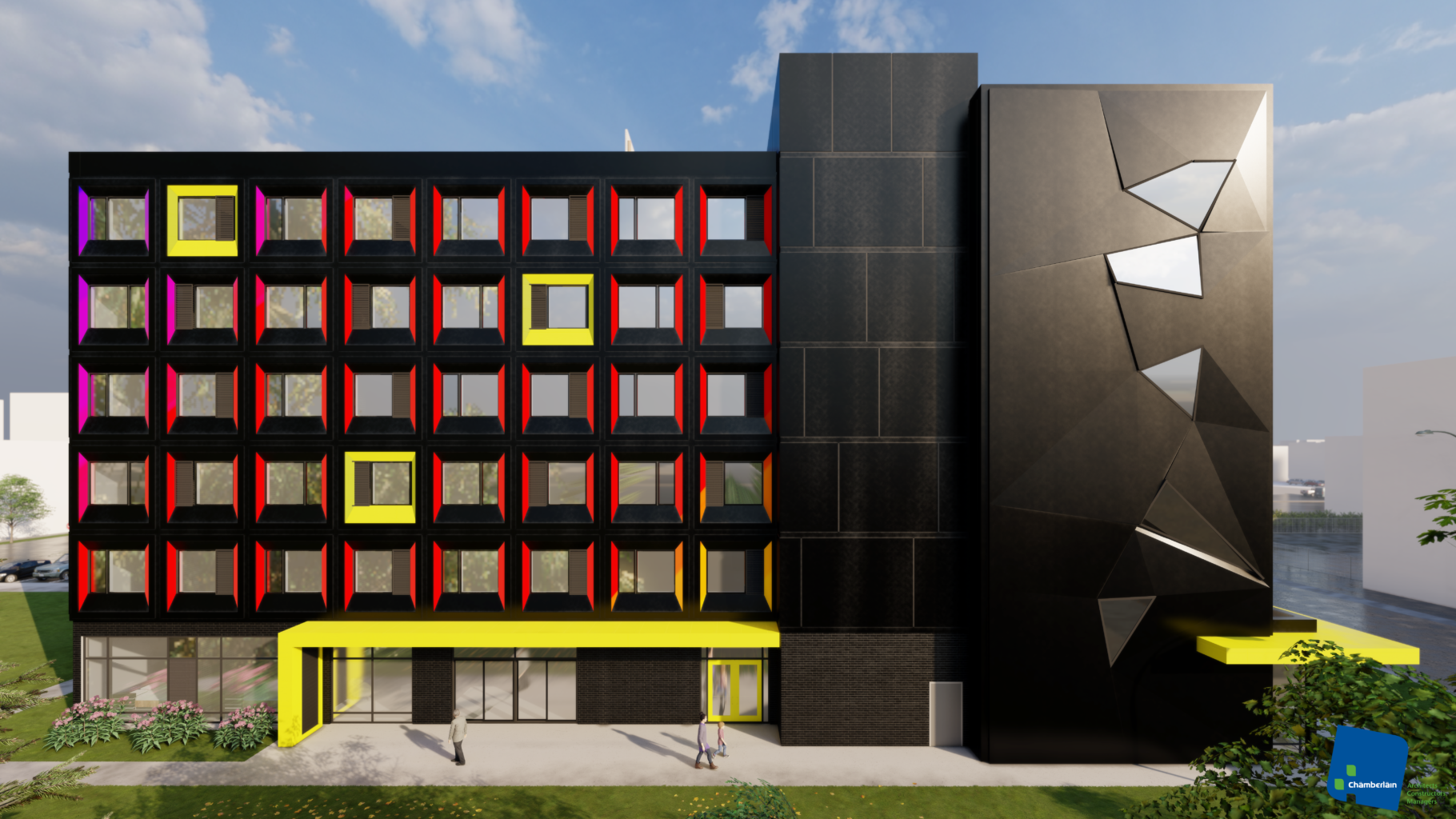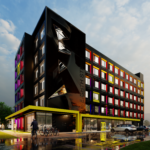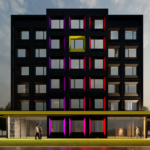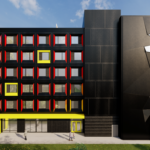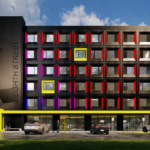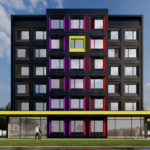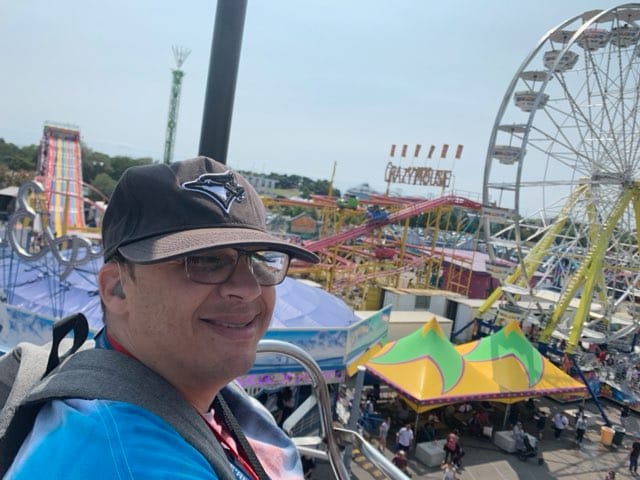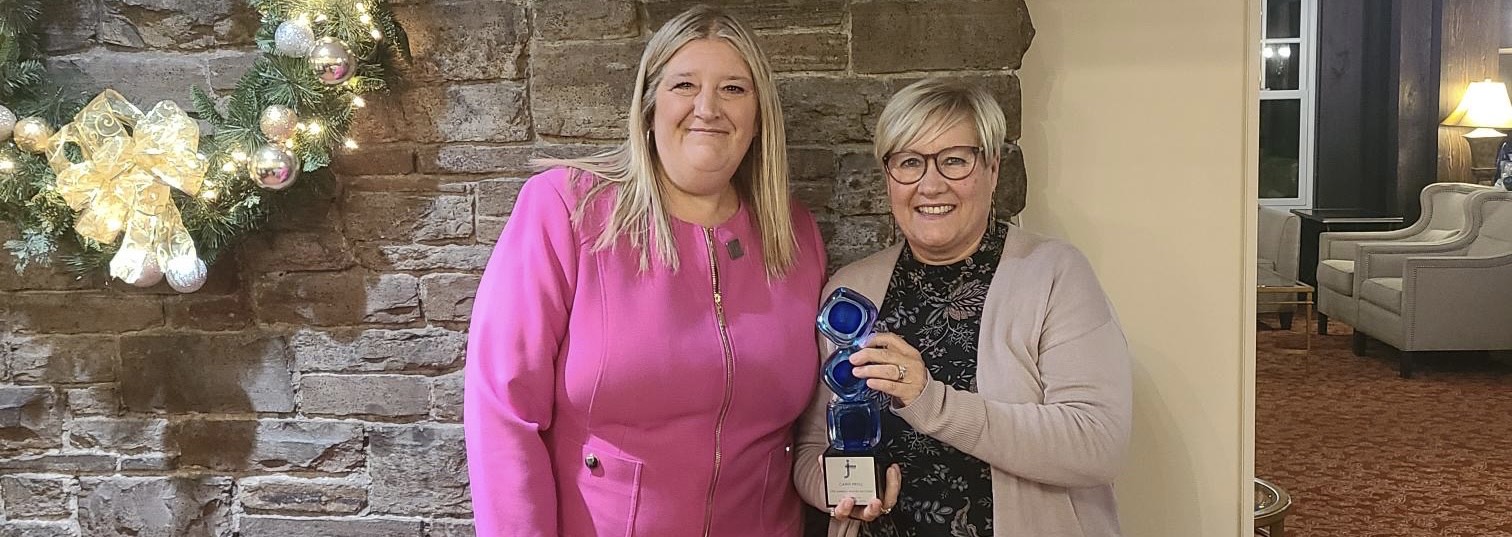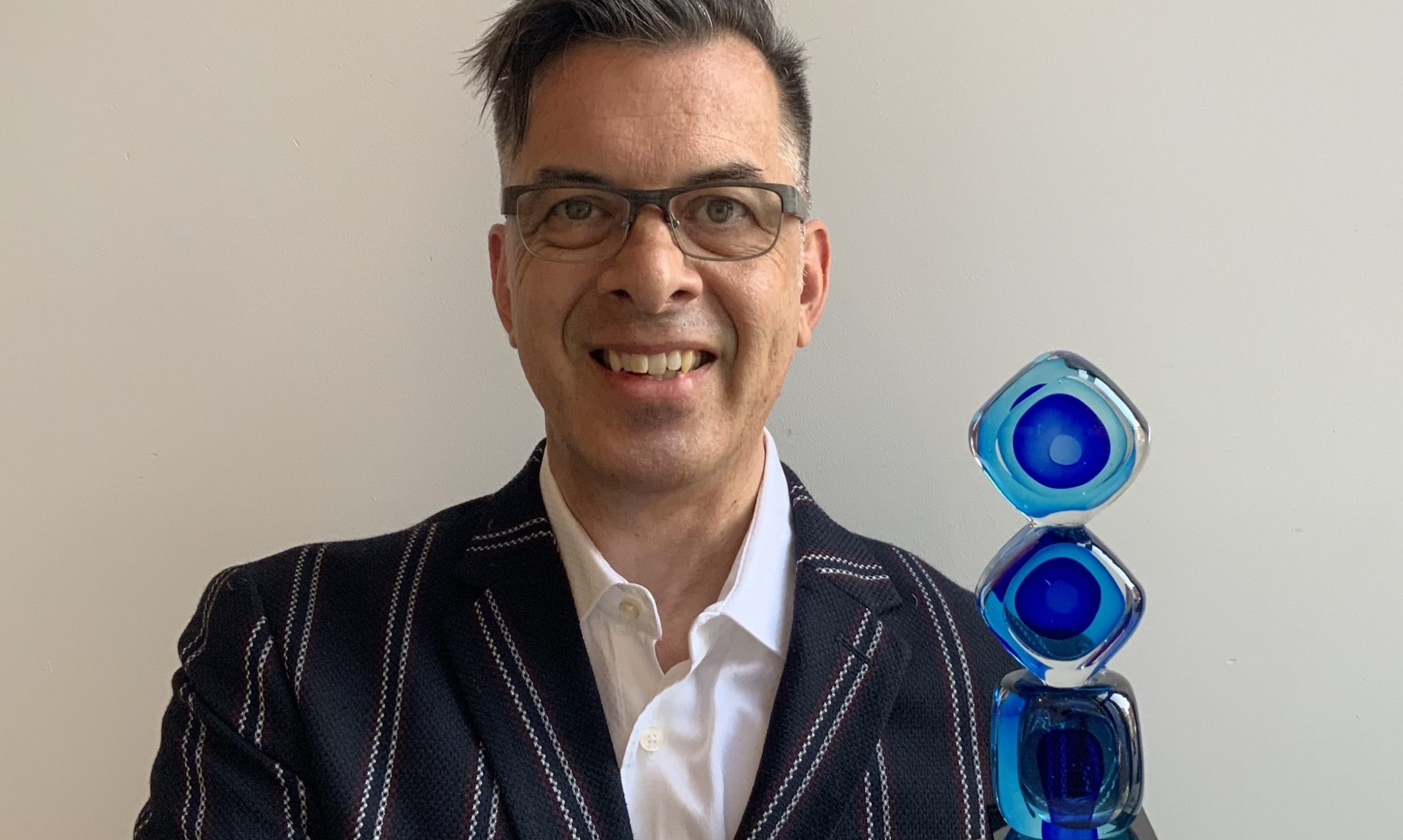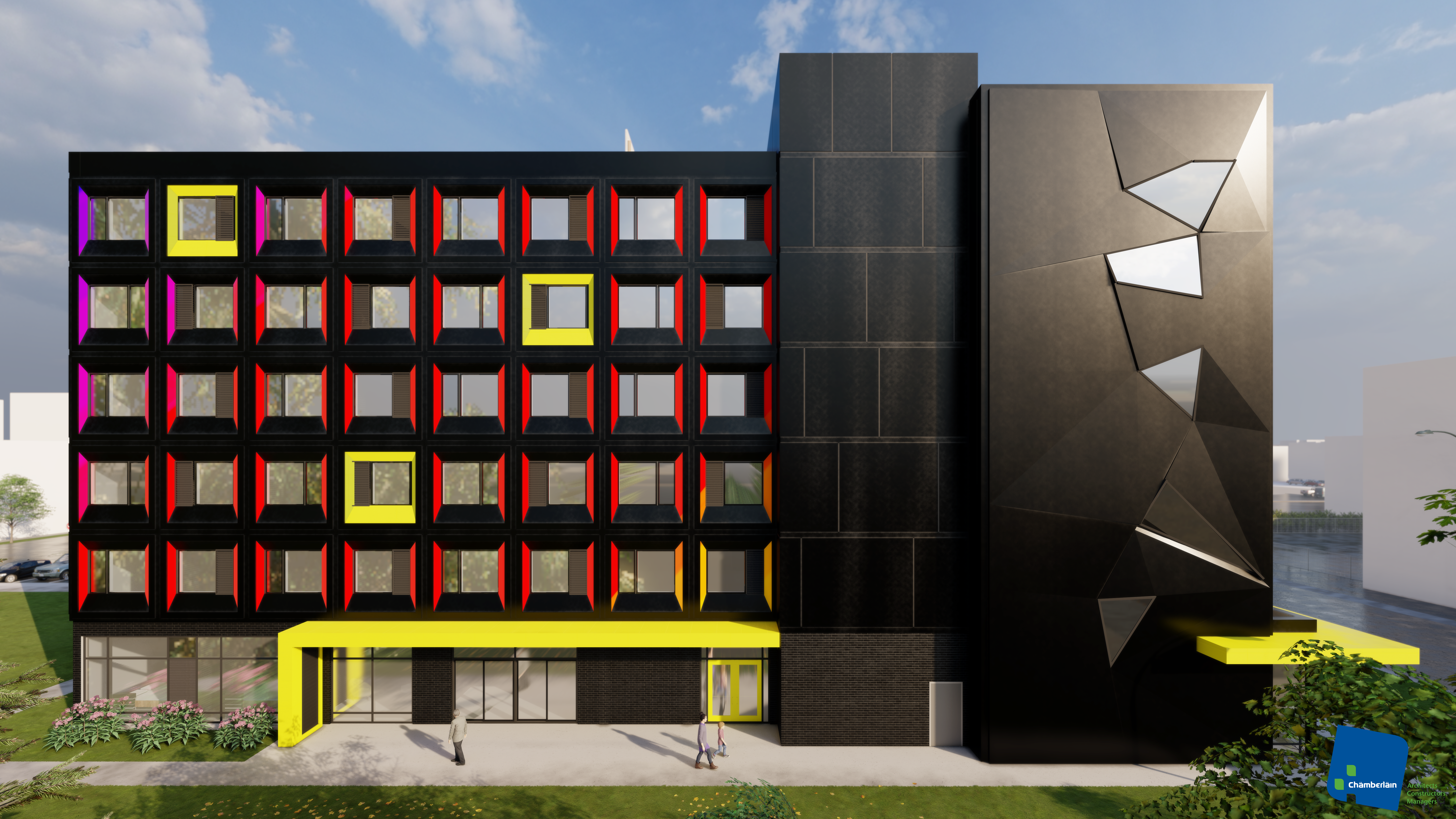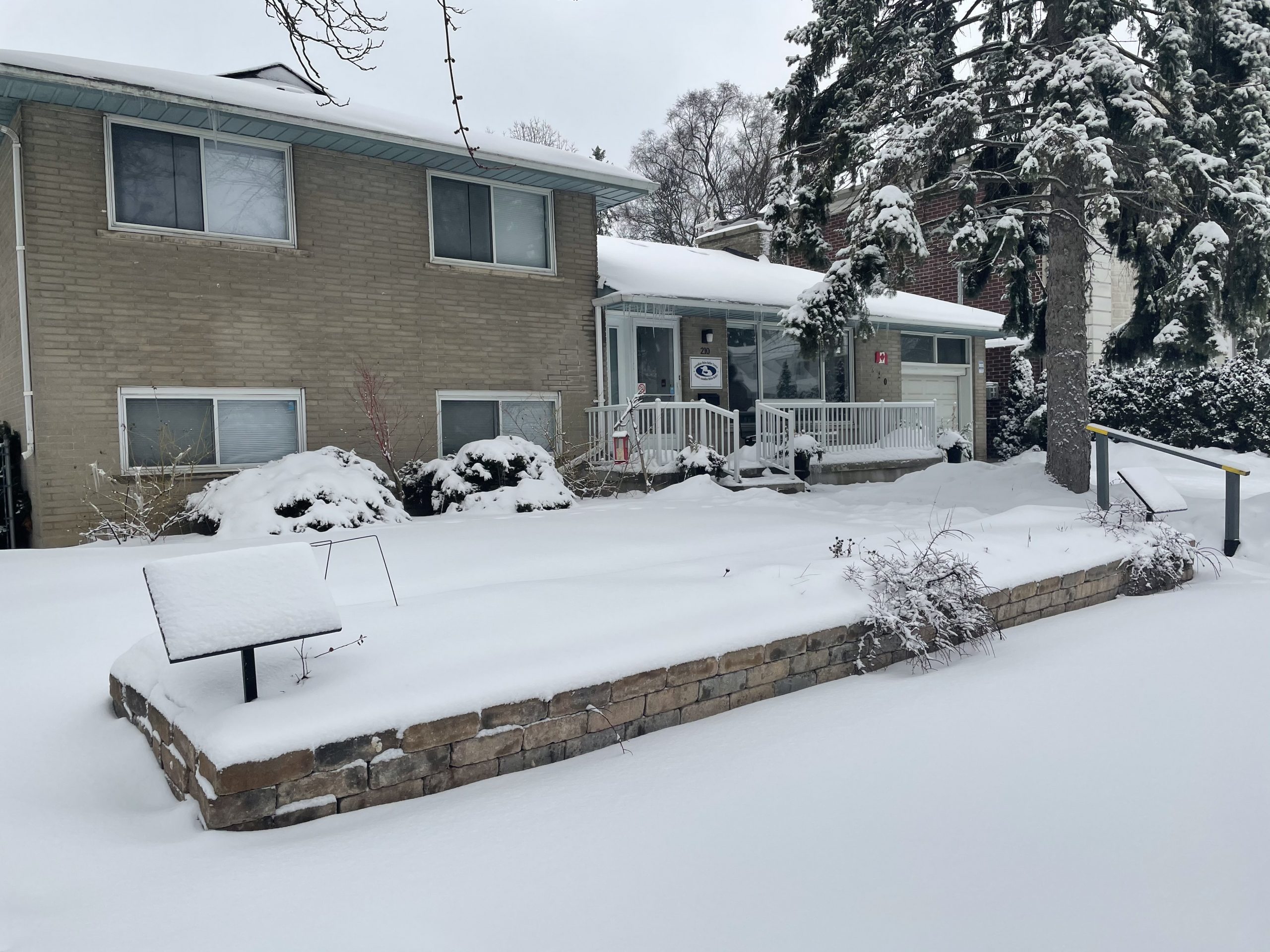Creating Independence for the Deafblind Community
- Rendering of the new building at 150 Eighth Street.
- Rendering of the new building at 150 Eighth Street.
- Rendering of the new building at 150 Eighth Street.
- Rendering of the new building at 150 Eighth Street.
- Rendering of the new building at 150 Eighth Street.
The Canadian Foundation for Physically Disabled Persons (CFPDP) and Canadian Helen Keller Centre (CHKC) have a proud, shared history. Both organizations were founded several decades ago by The Honourable Vim Kochhar with help from other passionate individuals who wanted to make a difference.
Today, CHKC is a remarkable success story. It provides accessible housing, programming and intervenor services for people who are deafblind. This helps alleviate the severe isolation that people with deafblindness can experience without specialized services, adaptive communication methods and appropriate housing.
“CHKC is unique because we have a 16-unit affordable housing building where deafblind consumers live independently in their own apartments,” says Jennifer Robbins, Executive Director of CHKC. “For over 30 years, these residents have received support from intervenors, who become the eyes and ears of people with vision and hearing loss. We also offer intervenor support to deafblind consumers living in the community.”
Over 400,000 Canadians are deafblind, each with individual needs that require special attention. Intervenors exist for communication and to create independence. They help consumers take part in the same types of day-to-day activities that any individual may choose to participate in. This can include dining at a restaurant, attending an exercise class, going to a doctor’s appointment or grocery shopping. Additionally, intervenors help deafblind people to socialize and create closer relationships with family and friends.
More Housing, More Independence
CHKC is currently embarking on its most ambitious project to date. Under the leadership of CHKC Board Chair Philip Corke and CHKC Director Anupam Kothari, the organization is building a 56-unit affordable and accessible apartment building. The new housing development will help reduce CHKC’s waitlist and give more people with a combination of hearing and vision loss access to an independent life. People with other disabilities will use any remaining units.
“Being independent is important for a person’s mental health and overall well-being,” says Robbins. “It also helps people who are deafblind to be fully immersed within the community and society at large.”
CHKC’s new apartment complex will also have a 6,500 sq. ft. state-of-the-art training centre where deafblind people can learn essential life skills to aid in their independence. This includes communication systems such as American Sign Language (ASL) and tactile ASL to braille and print-on-palm. There will be training in home management skills such as cleaning, laundry, and home safety, organization and maintenance. Consumers can learn about cooking, safe food handling/storage, personal grooming (e.g., shaving, putting on make-up), money management (e.g., budgeting, online banking) and technology (e.g., general computer skills, Apple and Android devices, deafblind-friendly apps). As well, CHKC offers social programs that evolve around sharing meals, gardening and other peer group activities.
“Accessibility is an important part of creating inclusive and welcoming communities,” says Robbins. “As an experienced housing provider for Canadians who are deafblind, we know what is needed to create independence and community under the same roof. Our entire team, which includes members of the deafblind community and independent committee members, is working passionately to help more people with dual sensory loss access an independent life. We are incredibly proud of the work that has been accomplished. CHKC is also eternally grateful for the financial support to fund our growth and help make this new apartment building a reality.”
So far, CHKC has secured $32 million of the $38 million needed to complete the project. The organization’s goal is to raise the remaining $6 million from generous donors and sponsors.
“A portion of the funds raised at CFPDP’s very first Great Valentine Gala helped build CHKC’s 16-unit independent-living apartment building in Toronto’s Willowdale neighbourhood,” says Hon. Kochhar. “Over the decades, we have continued to organize hugely successful events to provide ongoing support to CHKC and people with physical disabilities. We are proud of this legacy and encourage those who can give to do so generously.”
Please contact info@chkc.org for information regarding available sponsorship opportunities. Or visit our microsite at 150eighthstreet.ca or our Ways To Give page on the CHKC website.
Article written by Christine Payne
